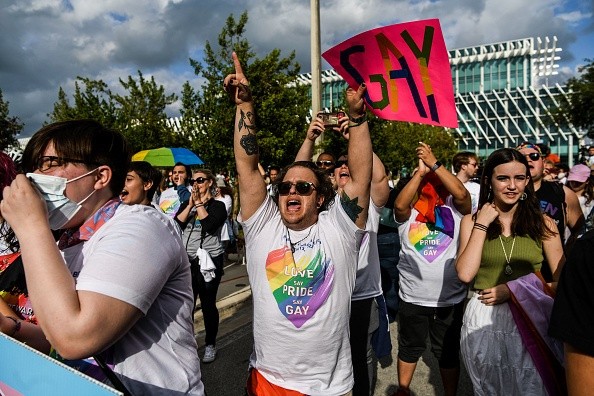Iowa rights groups, such as the American Civil Liberties Union of Iowa and Lambda, filed a lawsuit against the law banning LGBTQ+ books and discussions from school libraries to raise gender identity on Tuesday.
The law prohibits teachers from raising LGBTQ+ issues with students through grade six and forces educators to out the gender identity of students to their parents. The law also bans books depicting sex acts and includes an exception for religious texts, like the Christian Bible.
Iowa Rights Groups File Lawsuit Against Book-Banning Law

The Republican-led legislature passed the law earlier this year to silence LGBTQ+ students, erase any recognition of LGBTQ+ people from public schools, and ban books with sexual or LGBTQ+ content.
Penalties for violating the law would be effective on January 1. Breaking the law would place administrators, teachers, librarians, and other school staff at risk of disciplinary action, including termination and loss of their state professional education license.
The lawsuit was filed on behalf of Iowa Safe Schools, an organization that advocates for LGBTQ+ children, and seven Iowa students from fourth to 12th grades and their families. The lawsuit seeks to declare the law unconstitutional as it violates students' and teachers' free speech and equal protection rights.
ACLU attorney Thomas Story said the first amendment does not allow states or schools to remove books or issues covering bans on discussion and materials simply because a group of politicians or parents find them offensive.
Iowa governor Kim Reynolds, who signed the measure into law, defended the law and said that it was for the protection of children from pornography and sexually explicit content. He said that books with graphic depictions of sex acts have absolutely no place in schools.
Read Also : Pro-Palestinian Protestors Shut Down Manhattan Bridge, Demand Permanent Israel-Hamas Ceasefire
Iowa LGBTQ+ Students
Iowa City high school senior Puck Carlson, a plaintiff, shared in an online news conference that the law affects Iowa LGBTQ+ students. He said that her younger LGBTQ+ sister struggled to feel safe in school since the implementation of the law.
Carlson said, "School is one of the main places that children read, and being able to access literature in which you can see yourself is instrumental to a student's discovery of themselves." He noted that removing these books would make people less visible and stop students from discovering and being true to themselves.
"As a result of the ban, LGBTQ+ students are denied the comfort of narratives that include LGBTQ+ characters and the solace that they are not alone," the ACLU said as schools across Iowa have already pulled hundreds of titles from their shelves in response to the law.
Many banned books contain relevant content for LGBTQ+ students, including LGBTQ+ characters, historical figures, or themes.
In recent years, Republicans have been backing up previous laws that prohibit teachers from raising gender identity and sexual orientation issues. These laws restrict transgender students from using restrooms and ban treatments like puberty blockers and hormone therapy for trans minors.








